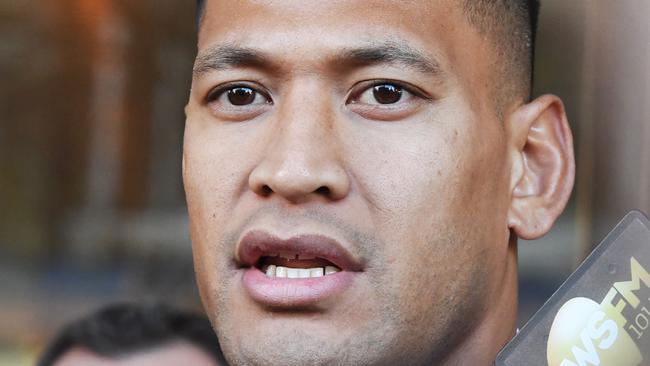Bid to tackle corporate culture
The government’s draft religious discrimination act will attempt to change the culture of corporate Australia.

The government’s draft religious discrimination act will try to change the culture of corporate Australia and avoid a repeat of the Israel Folau dismissal by seeking to prevent large companies from sacking employees for voicing their religious beliefs outside the workplace.
Under the government’s proposed changes, staff employed by businesses with a turnover of more than $50 million would be given extra protections allowing them to express their beliefs in their spare time.
“Clearly the issue that we had in mind was the tendency, particularly for larger corporations, to more and more become involved in proscribing what people can and can’t say in their spare time,” Attorney-General Christian Porter said. He added that under the draft legislation, a workplace code of conduct that prevented an employee from “making a statement of belief outside of work hours” would be deemed unreasonable.
The only exception would be in situations where the expression of a religious conviction by a staff member in their own free time would be likely to inflict an “unjustifiable financial hardship” on the employer.
“(An employer) would have to show that the rule, and its compliance, was necessary to avoid unjustifiable financial hardship,” Mr Porter said.
“In the Folau circumstances, if those general circumstances were repeated or argued under this type of section, I would be presuming that the sporting code would say that the things that were said (by Folau) … damages our brand and causes us provable financial hardship. And they would be able to, or attempt to, prove that.”
Applying the draft law to the case of former rugby union star Folau — who was dismissed by Rugby Australia after posting biblical teachings on homosexuals on social media — Mr Porter said it was possible that a court could decide that “unjustifiable financial hardship” could include the loss of sponsors.
The government’s proposal would not apply to public sector employees and would not provide protection for statements made by employees that were “malicious, would harass, vilify, or incite hatred against a person or group”.
The Australian Christian Lobby’s managing director, Martyn Iles, yesterday attacked the government’s proposal, saying it would fail to protect people caught up in situations similar to Folau.
“To suppress rugby players’ freedom of religious expression, Rugby Australia would merely have to say, as they did in Israel Folau’s case, that it was seeking to avoid ‘unjustifiable financial hardship’ for a sacking to be justified,” he said. “It allows medium and large corporations to discriminate against employees based on statements of belief if they claim there are significant financial implications, as Rugby Australia did.”




To join the conversation, please log in. Don't have an account? Register
Join the conversation, you are commenting as Logout